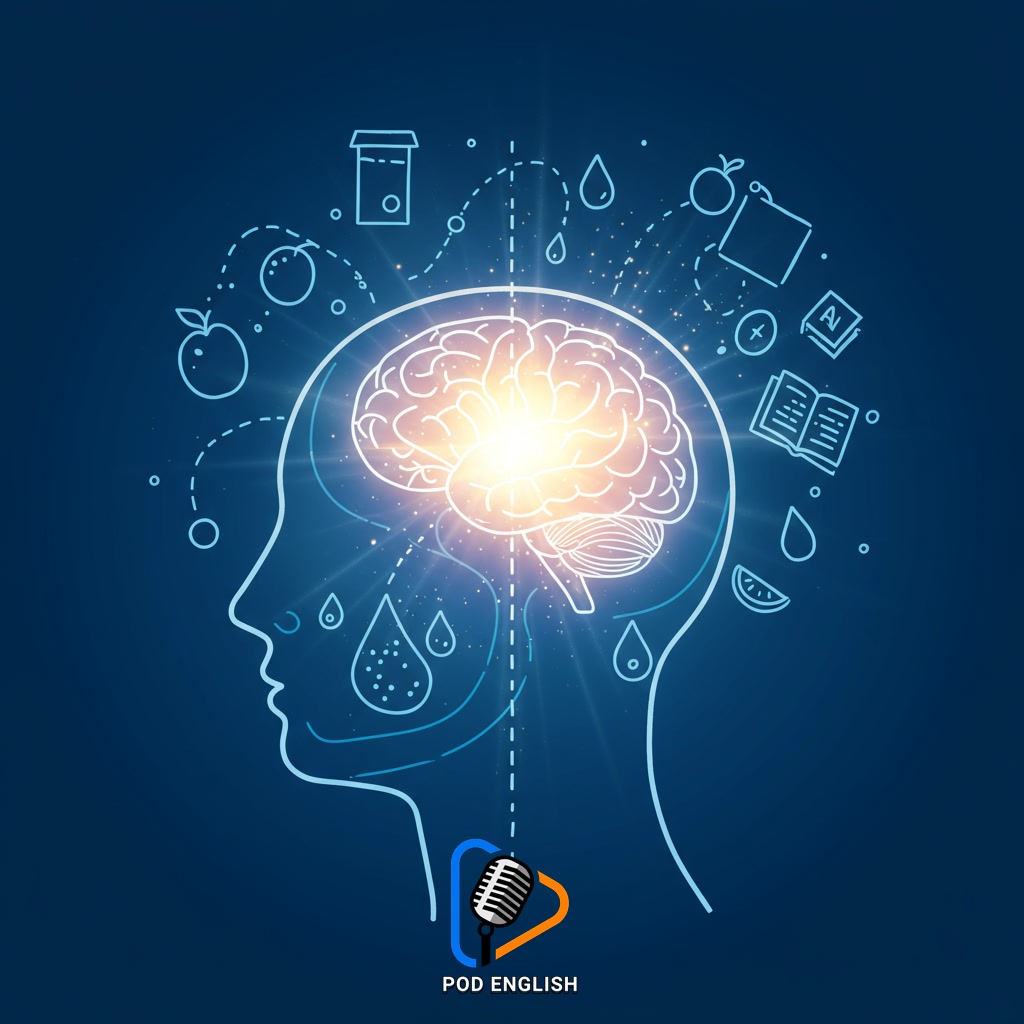Learn English
Best Hydrating Foods for Sharp English Study

This content explores the link between hydration and cognitive function, specifically focusing on how certain foods can help maintain optimal hydration levels. It highlights the best hydrating foods that may contribute to improved focus and mental sharpness essential for effective learning English. Discover how incorporating these foods into your diet can support your efforts in mastering the English language.
Table of Contents
- Section 1: Why Hydration Matters for Brain Function and Learning
- Section 2: The Direct Link: How Hydration Enhances English Study
- Section 3: Top Hydrating Foods to Fuel Your English Learning
- Section 4: Incorporating Hydrating Foods into Your Study Routine
- Section 5: Beyond Food: Hydrating Beverages for Focused Learning
- Section 6: Conclusion: Stay Hydrated, Stay Sharp for English Success
Section 1: Why Hydration Matters for Brain Function and Learning
Staying properly hydrated is fundamental for optimal brain function, which is crucial when you’re focusing on learning something new, like the English language. Even mild dehydration can significantly impact your cognitive abilities, leading to decreased concentration, difficulty with memory, and reduced alertness. Your brain is composed of about 75% water, and it relies on this hydration to perform essential tasks, including processing information, maintaining focus during study sessions, and consolidating new knowledge. Ensuring your body has enough water helps brain cells communicate more effectively and supports overall mental energy, making it easier to grasp complex grammar rules, remember new vocabulary, and engage actively in your English learning journey. Prioritizing hydration is a simple yet powerful step towards enhancing your study efficiency and achieving your language goals.
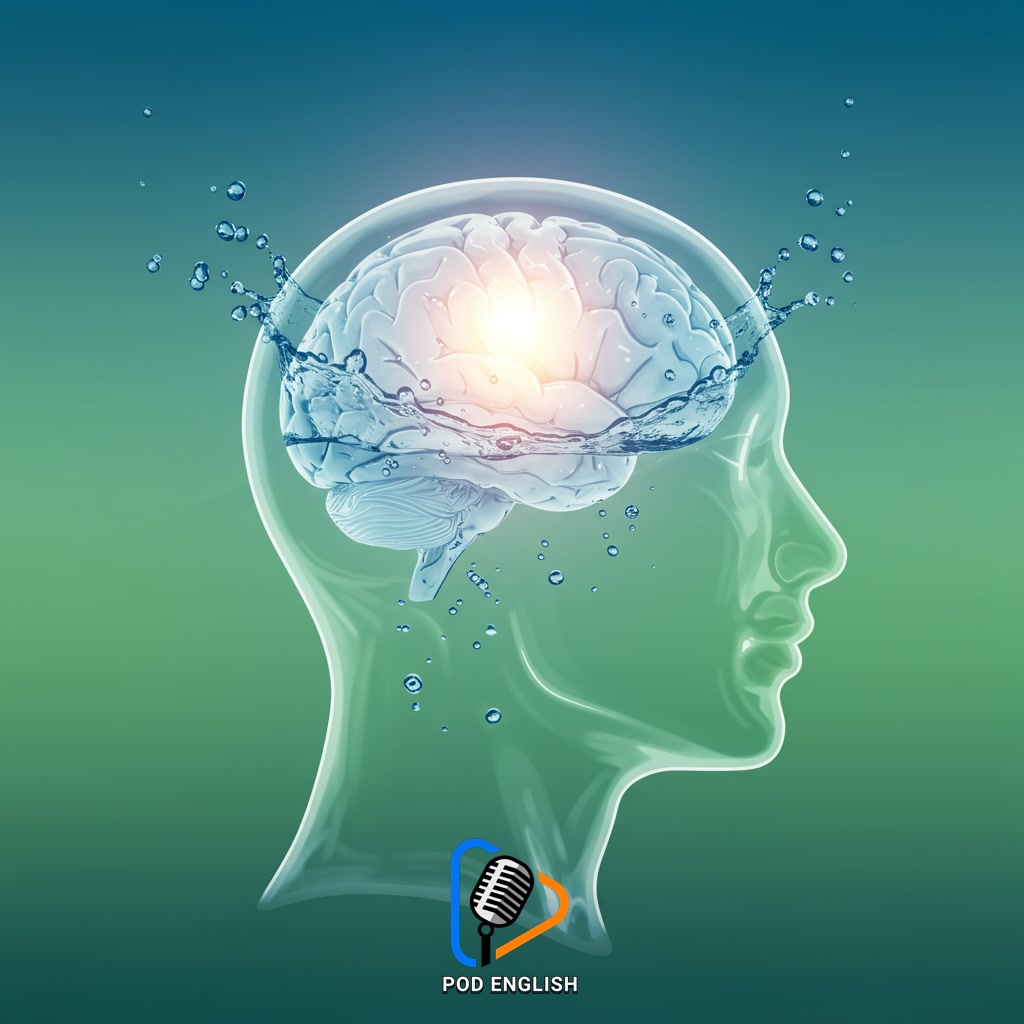
Section 2: The Direct Link: How Hydration Enhances English Study
Hydration directly impacts cognitive functions vital for learning English. When your brain is properly hydrated, nerve cells can communicate more effectively, leading to improved concentration and focus during study sessions. This enhanced clarity helps you absorb new vocabulary, understand complex grammar rules, and retain information more easily. Adequate hydration also supports better memory retrieval, making it simpler to recall words and phrases when you need them. Furthermore, staying hydrated can help prevent mental fatigue and headaches, allowing you to maintain energy and sharpness throughout longer study periods, ultimately making your English learning journey more productive and efficient.
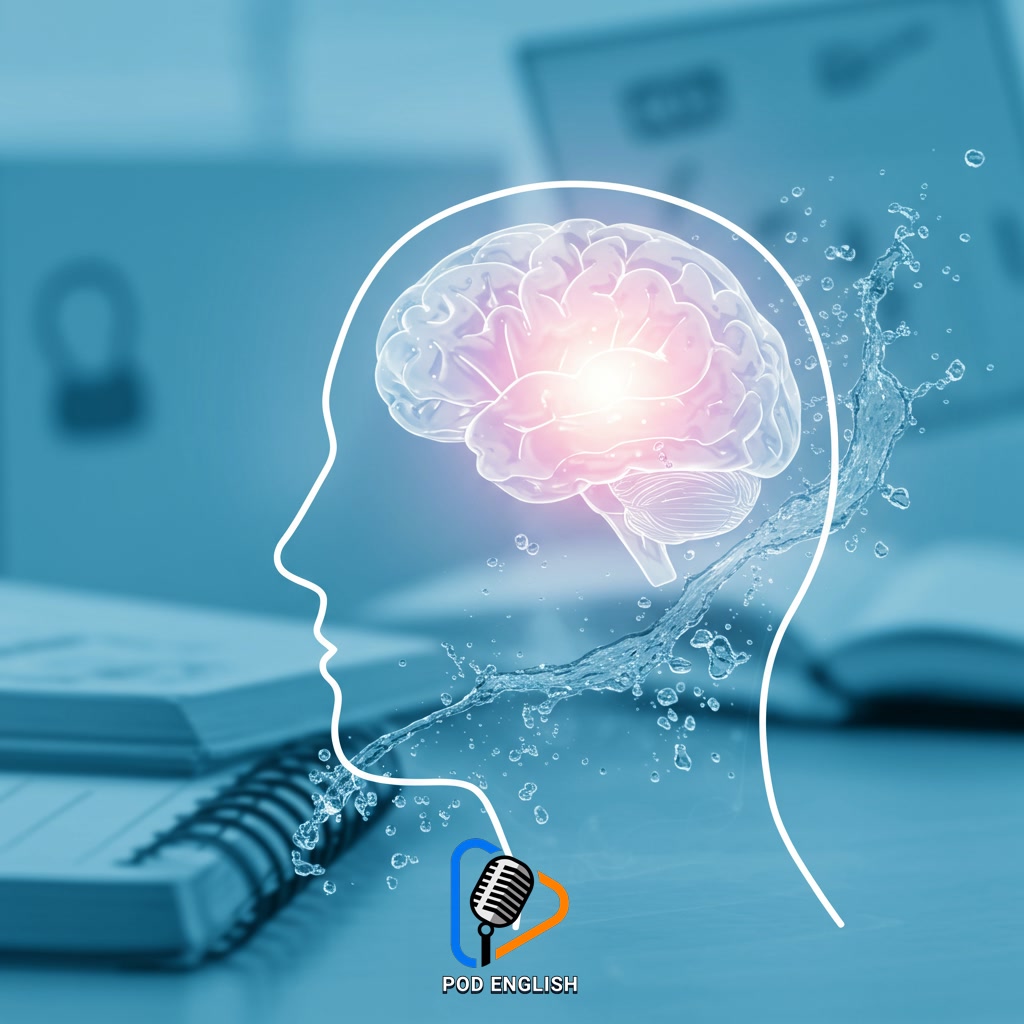
Section 3: Top Hydrating Foods to Fuel Your English Learning
Building upon the understanding that proper hydration is key for a focused mind, let’s explore specific foods that are excellent sources of water and beneficial nutrients for your brain during English study sessions. Many fruits and vegetables have very high water content, such as watermelon, strawberries, cucumber, and celery. These foods not only hydrate but also provide vitamins and minerals that support cognitive function. Other options include yogurt, which contains water and protein, and coconut water, a natural electrolyte source. Incorporating these delicious and refreshing foods into your diet can help maintain optimal hydration levels, potentially improving your concentration, memory, and overall brain performance as you tackle new English vocabulary and grammar.
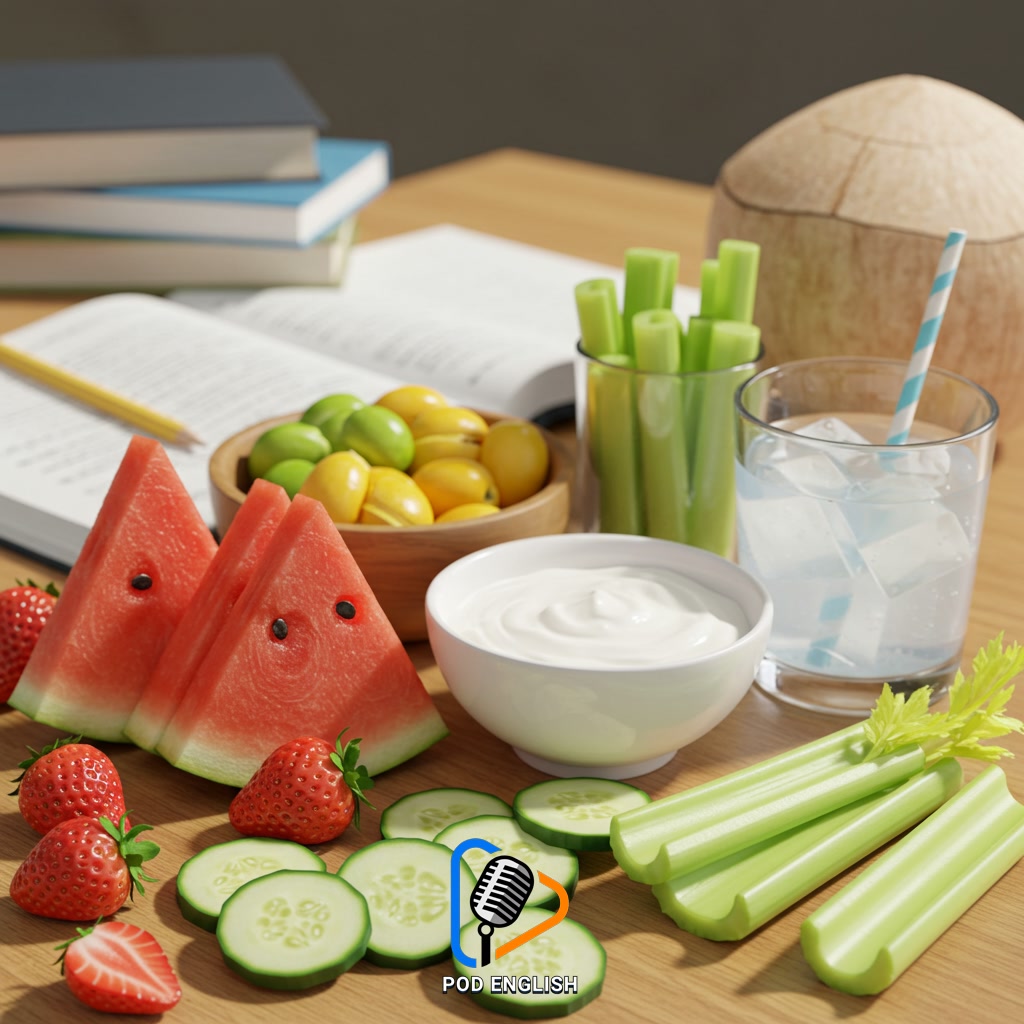
Section 4: Incorporating Hydrating Foods into Your Study Routine
Now that you know which hydrating foods can support your brain, the next step is making them a regular part of your English study routine. It’s simpler than you might think! Instead of reaching for sugary snacks or drinks, keep a glass of water or a water bottle nearby. Prepare easy-to-eat options like sliced cucumbers, bell peppers, or a small bowl of berries or melon chunks to munch on during short breaks. You can also add hydrating fruits like oranges or grapefruit to your breakfast before a study session. Having these healthy choices readily available makes it easy to stay hydrated and focused, giving you the sustained energy needed to tackle challenging grammar points or vocabulary lists effectively.
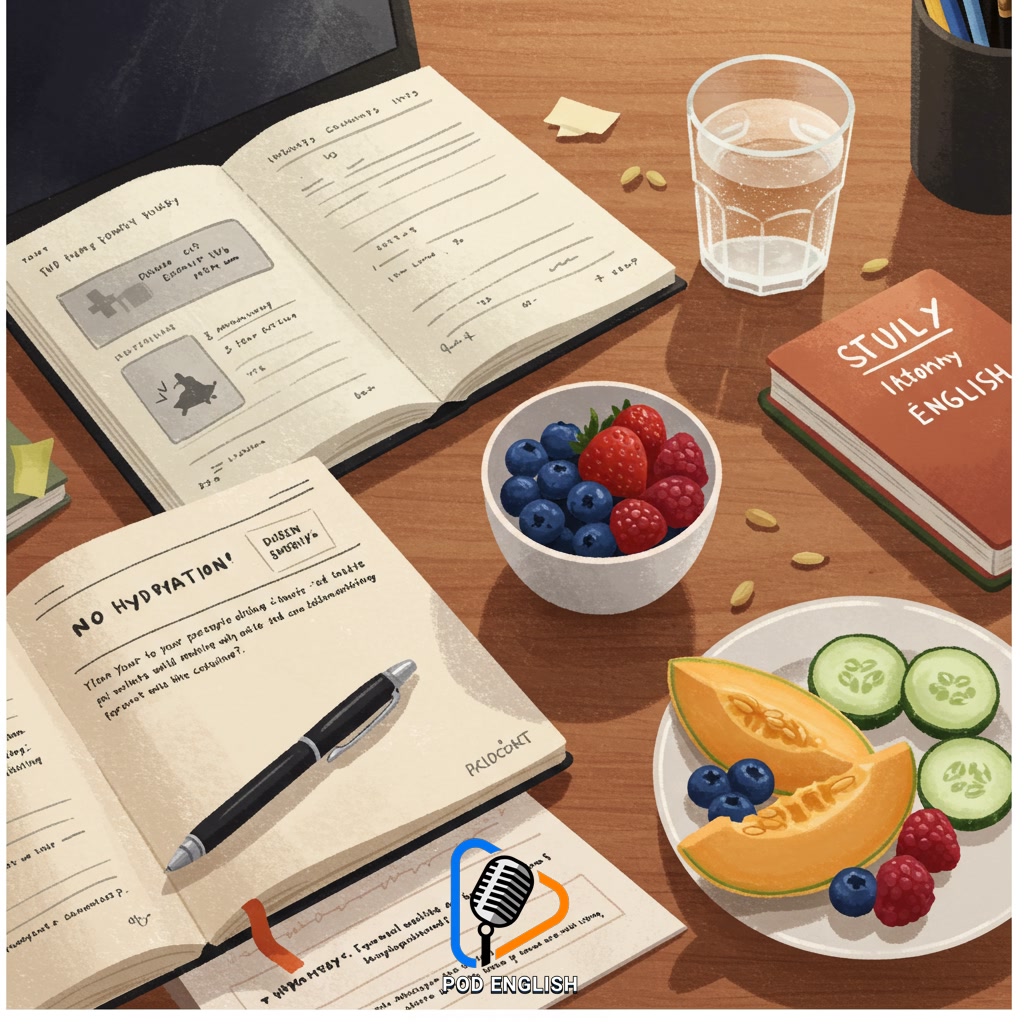
Section 5: Beyond Food: Hydrating Beverages for Focused Learning
Okay, you’ve learned about hydrating foods and how to incorporate them. But hydration isn’t just about what you eat; what you drink is equally, if not more, important, especially when you’re concentrating hard on English lessons. While plain water is always the champion for staying hydrated and keeping your brain sharp, other beverages can also contribute positively and make hydration more interesting. Think about unsweetened herbal teas, like chamomile or peppermint, which can be calming and hydrating. Infused water with slices of fruit like cucumber or lemon adds flavor without sugar. Avoiding sugary sodas and excessive caffeine is key, as they can actually dehydrate you or cause energy crashes. Making a habit of sipping on these healthy drinks throughout your study sessions can help maintain consistent focus and energy levels, preventing that foggy-brain feeling and helping you absorb new English vocabulary and grammar more effectively.

Section 6: Conclusion: Stay Hydrated, Stay Sharp for English Success
So, we’ve explored how both the foods you eat and the drinks you choose are fundamental to maintaining optimal hydration levels. Proper hydration is far more than just a physical necessity; it’s the bedrock for peak cognitive function. When your brain receives adequate hydration, its ability to focus, process information, and retain new knowledge is significantly enhanced. This mental sharpness is absolutely crucial for effective English learning, allowing you to grasp complex grammar, remember vast vocabulary, and concentrate during study sessions. By consciously incorporating hydrating foods and ensuring sufficient fluid intake daily, you are actively supporting your brain’s performance, paving the way for greater confidence and success on your journey to mastering the English language.
